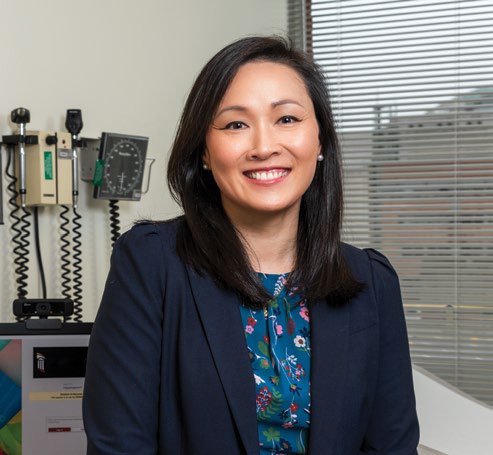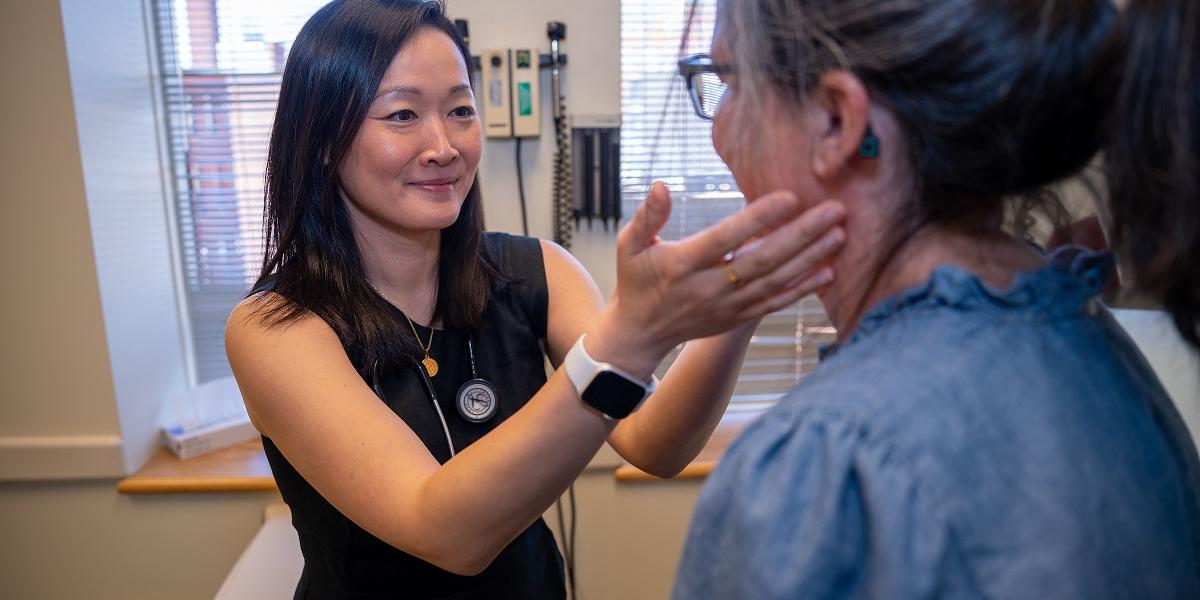Partner Content
“Many patient-primary care relationships can last a lifetime, therefore find a PCP that you feel comfortable having open conversations with regarding your health.”
Dr. Danielle Baek became a physician because she enjoys developing strong relationships with patients over time, and successfully tackling their medical conditions together. Here she talks about the role of a primary care physician, and why it’s so important to overall health.
Explain the role of the primary care physician (PCP) in healthcare today?
A primary care physician is your main point of contact for most health care needs. We provide routine visits focused on preventative care, as well as visits for new medical concerns and management of chronic conditions. PCPs can also quickly refer you to specialty providers when needed.
What should patients consider when choosing their PCP?
Many patient-primary care relationships can last a lifetime, therefore find a PCP that you feel comfortable having open conversations with regarding your health. Besides choosing someone who is “in-network” for your health insurance plan, we also recommend asking about access to urgent visits, ways to reach your provider (online portal and after-hours access), and other resources available to patients (specialists, pharmacy, lab, and imaging services, etc.).
What are the benefits to having a PCP in addition to other specialists?
As primary care physicians, we’re your partners for better health. We really focus on coordinating your care across all specialists on your care team, and make sure that the changes made by one specialist don’t interfere with the medical plan of another. If you have a new medical concern and don’t quite know who to reach out to for help, we are also there to assist.
Tell us about the most significant preventative measures patients can take to age well.
While not always required, a full physical exam and some “baseline” lab work is always a great place to start. And we encourage our patients to stay active in the best way they can.
What are key preventative screenings you recommend patients receive?
There are so many! It really does depend on your medical history, but we definitely screen for certain cancers (for example: colon cancer, cervical cancer, and breast cancer), osteoporosis, sexually transmitted infections, blood pressure, diabetes, and high cholesterol. We also love to review your vaccine history.
How often should patients visit their PCP?
Everyone should have at least a check-up once a year. A lot can happen in a year and we want to make sure you are as healthy as possible. For people with chronic but stable medical conditions, we usually see them somewhere between two to four times a year.
When should a patient seek medical care?
It’s never wrong to check in with your doctor if you have a concern about your health. Most physicians have online patient portals where you can start that conversation via messaging. With advancement in telemedicine, we often can see you quickly for a check-in by phone or video. Given the long-term, supportive relationships PCPs build with patients, sometime we can more easily determine whether a symptom is related to a chronic condition versus something new that we need to work up.
What is your overall best health tip?
Every little bit helps! We want to help you find incremental, sustainable changes to your daily routines, diet, and health habits to help manage your medical conditions for a long and healthy future.

MEET THE EXPERT:
Danielle Baek, MD
Assistant Professor of Medicine
Associate Division Chief, General Internal Medicine
University of Maryland School of Medicine
Locations: Baltimore City & Owings Mills
Appointments: 667-214-1515

